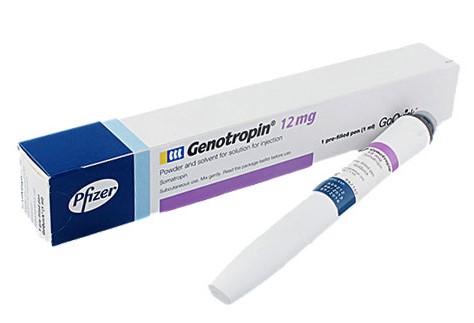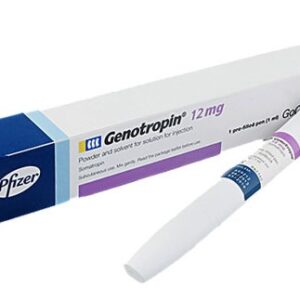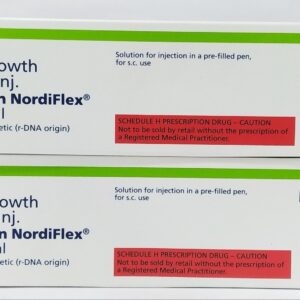Description
Genotropin Overview
Genotropin is a form of human growth hormone (HGH) essential for the growth of bones and muscles. It’s primarily used to treat growth failure in children and adults who lack natural growth hormone due to various conditions, such as Turner syndrome, Prader-Willi syndrome, or short stature at birth without subsequent catch-up growth. Additionally, Genotropin can be prescribed for adults with short bowel syndrome or to prevent severe weight loss associated with AIDS.
Genotropin Injection and Pricing
The Genotropin injection is a popular choice for effective growth therapy. It’s available in specific products like the Pfizer Genotropin Pen 12mg (36IU), which provides precise dosing. The cost of Genotropin, also known as somatropin, varies by region and brand, making it important for patients to compare prices, often referred to as Genotropin fiyat, Genotropin precio, or Genotropin 36 iu preis.
Usage Instructions
Before starting treatment, it’s crucial to consult with a healthcare provider to understand the proper usage and dosage, which will be based on factors such as age, weight, medical condition, and response to treatment. Genotropin is typically administered via injection under the skin, with the specific method depending on the brand. Patients must rotate the injection site to avoid skin issues and follow all instructions provided by their healthcare provider closely.
Precautions and Warnings
- Pregnancy and Breastfeeding: Genotropin should not be used during pregnancy or breastfeeding without medical advice. It’s especially important to avoid use in patients with certain conditions, such as hypersensitivity to the drug or insulin-dependent diabetes mellitus.
- Medical Conditions: Patients with cancer, diabetic retinopathy, or severe breathing problems associated with Prader-Willi syndrome should not use Genotropin. Additionally, those who have recently undergone surgery, injury, or have experienced serious illness should avoid this medication.
- Monitoring: Regular medical tests are necessary to monitor the effects of Genotropin. Patients with a history of brain tumors, scoliosis, or thyroid issues should be closely observed during treatment.
Side Effects
Common side effects of Genotropin may include nausea, diarrhea, dizziness, and joint pain. More severe reactions, such as breathing difficulties, swelling, or changes in behavior, require immediate medical attention. There is also a risk of developing diabetes mellitus or an increase in the size of existing tumors in some patients.
Storage and Disposal
Proper storage and disposal of Genotropin are essential. The medication should be prepared only when ready for use, and any unused portion must be discarded after the expiration date. Used needles and syringes should be disposed of in a puncture-proof container, following local disposal regulations.
Important Safety Information
- Alcohol Interaction: The interaction of Genotropin with alcohol is not well known, so consult your doctor.
- Driving: There is no clear data on whether Genotropin affects the ability to drive, so caution is advised.
- Liver and Kidney Function: It’s important to consult your doctor regarding any concerns about liver or kidney function before starting treatment.
Conclusion
Genotropin is a critical treatment for individuals with growth hormone deficiencies, but it must be used under strict medical supervision due to potential side effects and specific health risks. Always consult your healthcare provider for personalized advice and follow all instructions for safe and effective use.






Reviews